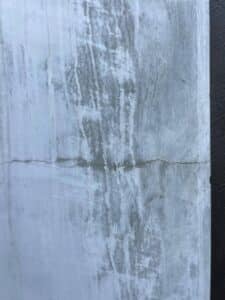Yes, wall cracks are a concern that should be addressed. If left unchecked, these cracks can progressively deteriorate, posing serious safety risks. They often signal potential problems with your property’s foundation or structural integrity, which might require underpinning restoration services.
In this blog, we’ll discuss ways to assess wall cracks and learn about their causes.
How to Assess House Wall Cracks
You can assess house wall cracks by performing the following:
Visual Inspection
Begin by conducting a thorough visual inspection of the wall cracks. Look for patterns in the cracking, such as horizontal, vertical, or diagonal lines. Note the width and length of each crack.
Wide or growing cracks might indicate serious issues, like property foundation movement. Observe if the cracks are isolated to one area or spread across multiple walls, which could suggest different underlying causes.
Physical Examination
Next, move to a physical examination of the cracks. Gently probe the cracks with a tool like a screwdriver to assess their depth. Be cautious not to widen them.
Feel for any loose material or signs of moisture, as these can be indicators of deeper structural problems. Checking the solidity of the wall around the crack is crucial to determine the extent of any potential damage.
Check for Other Signs
Finally, check for other signs that might accompany the wall cracks. Look for doors or windows that stick or won’t close properly, as these can be symptoms of shifting foundations.
Observe any gaps where walls meet floors or ceilings, and note any uneven flooring. These signs, combined with wall cracks, can provide a clearer picture of the overall structural health of your home.
What Causes Cracks in My House?
Cracks in your house can be caused by various factors, often related to the natural settling of the building over time. As your house ages, it’s common for minor cracks to appear due to slight movements in the earth beneath the structure.

Seasonal changes in temperature and moisture levels can also cause materials like wood and plaster to expand and contract, leading to cracks. In some cases, more significant cracks can result from property foundation movement, often triggered by changes in soil conditions, such as excessive moisture or soil erosion.
Structural alterations can likewise strain the building’s integrity, leading to cracks. Monitoring these cracks to ensure they don’t indicate more serious structural issues is important.
Who Should I Call for Help Regarding Wall Cracks?
You need to call a foundation repair specialist to help with wall cracks. These professionals are adept at diagnosing and fixing structural concerns, particularly when addressing wall cracks stemming from foundational issues.
Wall cracks may frequently hint at more profound foundation complications. Foundation repair specialists have the skills and tools to diagnose the root cause of these cracks and resolve them.
